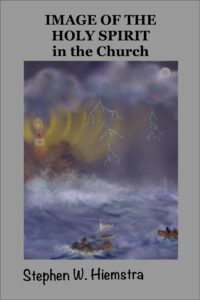The Call of the Church

But you will receive power when the Holy Spirit has come upon you,
and you will be my witnesses in Jerusalem and in all Judea and Samaria,
and to the end of the earth.
(Acts 1:8)
By Stephen W. Hiemstra
The Bible is a missionary document written by missionaries (Schnabel 2004, 5-6). The footloose character of the Holy Spirit as articulated in the Book of Acts must therefore be a controlling view throughout scripture. We see this already in the story of Abram where we, as stand-ins for Abram, are blessed to be a blessing (Gen 12:1-3). Rejecting this call to missions, is effectively a rejection of our own election (McDonald 2010, 61, 97).
Rejecting the Call
Did the Nation of Israel lean into this idea of being a blessing to the nations around them?
The Prophet Jonah is instructive. God sends Jonah to preach to the Ninevites and he refuses; nevertheless, after being swallowed by whale, Jonah relents. He goes to Nineveh, prophesies their destruction, and the Ninevites turn to God (Schnabel 2004, 86-87). Jonah is neither surprised nor happy about this outcome (Jonah 4:1).
This impulse to separate from other nations grew stronger during the Second Temple period following the Babylonian captivity:
“You see the trouble we are in, how Jerusalem lies in ruins with its gates burned. Come, let us build the wall of Jerusalem, that we may no longer suffer derision.” (Neh 2:17)
When a nation is defined in terms of walled cities and faith in terms of temples, religion is more of a defense from foreign influences than an opportunity to be blessed and become a blessing to others. This is perhaps why no Shekinah cloud fills the rebuilt temple during this period.
This is the status of the people during the intra-testament period when there was no prophet in Israel after Malachi for four hundred years, which suggests why John the Baptist is often referred to as the last Old Testament prophet.
Crafting the Call
The core missionary intent is evident in Jesus calling his followers to be “fishers of people” and are referred to them as “Apostles” which means: “envoys sent by the risen Jesus Christ to proclaim the good news.” (Schnabel 2004, 10-12) Jesus describes his own mission when approached by Syrophoenician woman: “I was sent only to the lost sheep of the house of Israel.“ (Matt 15:24; Luke 4:43-44). Jesus saw himself as a missionary primarily to Israel, but the mandate for disciples to evangelize the world comes from the risen Christ just before his ascension: “You will be my witnesses in Jerusalem and in all Judea and Samaria, and to the end of the earth.” (Acts 1:8; Schnabel 2004, 207).
This call to evangelize the nations is not restricted to Luke-Acts. Matthew cites the Great Commission:
“Go therefore and make disciples of all nations, baptizing them in the name of the Father and of the Son and of the Holy Spirit, teaching them to observe all that I have commanded you. And behold, I am with you always, to the end of the age.” (Matt 28:19-20)
The phrase—“I am with you always”—sounds suspiciously like a gift of the Holy Spirit. In John’s Gospel the parallel passage is: “As the Father has sent me, even so I am sending you.” (John 20:21) Mark’s parallel passage is: “Go into all the world and proclaim the gospel to the whole creation.” (Mark 16:15)
When the calls to evangelize the world are cited, some will respond that these texts were late additions to the original manuscripts, but the texts themselves are full of efforts to train the disciples in evangelism. Consider Jesus’ sending of his disciples ahead of his own traveling path, a kind of first-century advance-team:
“After this the Lord appointed seventy-two others and sent them on ahead of him, two by two, into every town and place where he himself was about to go. And he said to them, The harvest is plentiful, but the laborers are few. Therefore pray earnestly to the Lord of the harvest to send out laborers into his harvest.” (Luke 10:1-2)
And what training had the disciples received in evangelism, other than to live with Jesus and know him? The disciples were given no resources and were to live among the people: “Carry no moneybag, no knapsack, no sandals, and greet no one on the road.” (Luke 10:4)
While the Holy Spirit had not yet been formally given to them, the disciples’ report suggests that informally the Holy Spirit had already empowered them: “Lord, even the demons are subject to us in your name!” (Luke 10:17) By any line of thinking, exorcism is a ministry of power, a test of wills within a spiritual context.
The Greater Context
While seeds of this view of missions and the church’s call are found throughout scripture, Luke is the one who develops this vision most clearly. Note that the church’s mission statement (Acts 1:8) is given before the granting of the Holy Spirit at Pentecost (Acts 2:1-4).
References
McDonald, Suzanne. 2010. Re-Imaging Election: Divine Election as Representing God to Others & Others to God. Grand Rapids: Eerdmans.
Schnabel, Eckhard J. 2004. Early Christian Mission: Jesus and the Twelve: Volume One. Downers Grove: InterVarsity Press.
The Call of the Church
Also see:
The Face of God in the Parables
The Who Question
Preface to a Life in Tension
Other ways to engage online:
Author site: http://www.StephenWHiemstra.net
Publisher site: http://www.T2Pneuma.com
Newsletter at: https://bit.ly/jog_0725, Signup
The post The Call of the Church appeared first on T2Pneuma.net.



